
Baldur's Gate: Enhanced Edition Review
To mark the 20th anniversary of the first Baldur’s Gate, Beamdog is releasing Baldur’s Gate I & II Enhanced Edition for the Playstation 4, Nintendo Switch, and Xbox One. This series, especially the original, has been often considered as a sort of pinnacle of the modern CRPG since its release back in 1998 and after playing it now for the first time, I can understand why -- it’s a strong game with a strong foundation. After playing through the original Baldur's Gate in about 40 hours, I can now see why it has remained relevant for two decades.
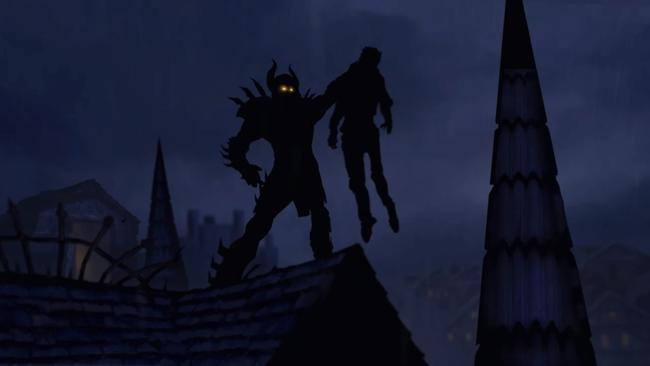
Despite being a long time fan of RPGs and tabletop games, this Enhanced Edition is my introduction to Baldur’s Gate and it seamlessly melds those experiences. Baldur’s Gate Enhanced Edition relies on the visual and auditory nostalgia of the CRPGs I spent my free time with as a young teen. Characters on screen are detailed enough to be discernible without stepping into the era of hyper-realism while the environments take on the homemade, painterly look one might associate with tabletop games. The way music can switch between large scale upbeat battle themes to gentle nighttime ballads, as well as the vast dialogue options throughout, this feels like a proper RPG in pretty much every respect.
While colorful, Baldur's Gate doesn't immediately impress in its outward presentation: the environment is static and character models are generic versions of their character portraits, which in comparison are detailed and unique. However, the colors are vibrant and cutscene artworks are full of detail. I didn’t even mind dying a handful of times because the hand-painted image shown was beautiful in its simplicity. All of these details are vivid and immediately transport you into the high fantasy world of the Forgotten Realms.
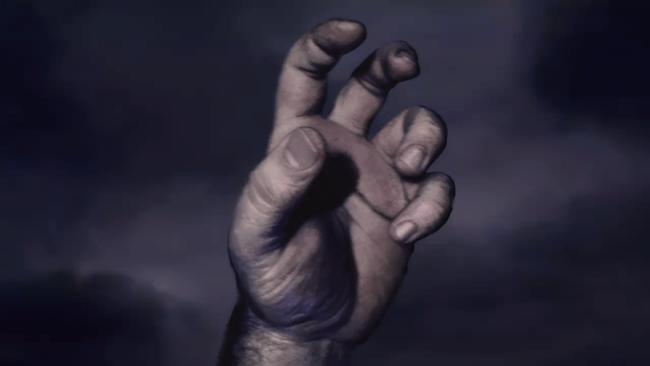
Baldur’s Gate opens like many high-fantasy RPGs -- after choosing a race and class, you are thrust into a mysterious world that initially begins closed off and mundane until one assassination attempt turns into an investigation of the land's mysterious iron shortage and your character's tie to it. There are moments in the story where your character has mysterious dreams and fateful encounters that start vague and small-scale which then slowly, almost imperceptibly, work their way up to being dark premonitions that hint at a more serious, more detrimental past as the current events become more meaningful and consequential.
Whether you’re solving small squabbles amongst townspeople, hunting down the source of the iron shortage, or slowly figuring out exactly where you stand in all of this, Baldur’s Gate effortlessly weaves together conflicts ranging from the immediate physical danger of a bandit encounter to the lingering threat of an enigmatic dark hidden magic. The narrative is strong and concise throughout the story. With everything that’s available, I rarely found myself searching for answers that the narrative didn’t provide either through the main story, sidequests or NPC interactions.
That being said, the game opens slowly but expands quickly. You aren’t forced into following a path. The “important events” section of the journal is a guiding line but that same journal quickly fills up with quests that take you everywhere. It’s up to the player to find those areas and most likely pick up more quests along the way. Despite the speed at which side quests pile up, these quests rarely feel like simple fetch quests. Once you leave the opening area of Candlekeep, side quests add to the overarching story, provide details into the lives of party members and guide you through the many towns and patches of wilderness. Most of the map is open from the start, it’s all up to you, provided you and the allies you encounter are strong enough to handle the threats that come your way.
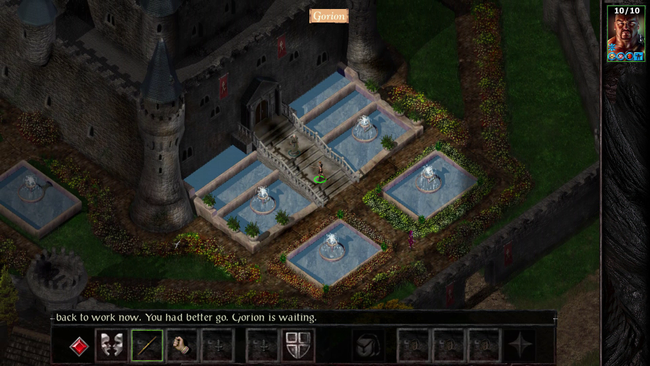
Another big aspect to the storytelling in Baldur’s Gate is party interactions and the narrator. They add a layer of personality to the game that can be off at times, such as a low level enemy yelling “So I kicked him in the head until he was dead nyahahaha” before entering a battle, or absolutely sobering like the moments of quiet where all you have is the narrator slowly describing an event that’s to come.
Throughout the game, I experimented with a few different characters in my party before I eventually settled on a final composition that fit my playstyle. While all of the party options have a specific role they fill base on their class and skills, it was often the side chatter and one-on-one conversations that really sealed their place among go-to band of adventurers. It often felt like talking to real people instead of automatically generated conversations that had no variety. Especially important is the fact that there's a degree of weight behind character morals and sensibilities that feels consequential and isn't just pure flavor: behaving in a way contrary to a party member's ideals actually means risking losing up to half of your party as well as your reputation, which can then results in having to change strategy on the fly.
Baldur’s Gate brings back the feeling of playing a tabletop Dungeons and Dragons session where everything depends on an automated dice roll where a random wolf or spider can down you in 4 hits if it's lucky enough, nothing feels set in stone. It brings about the same joys of progressing and strategizing. However there are options that can minimize the extent to which these rolls can result in success or failure: while I went through the game on Normal difficulty, there are 7 different levels ranging from a breezy Story Mode in which base stats for the party are high, negative effects are moot, and party members can’t die, all the way to an insanely brutal Legacy of Bhaal challenge. As a first-time player, Normal difficultly still had its challenges. Leveling through early areas such as Cloakwood and the Mines became essential to figuring out where to put party members and how to direct them. Autopiloting in this game isn’t really an option and it wasn’t uncommon for me to die to a minor boss and have to reenter the battle with an entirely new strategy. It can be draining and tiring at times, but once you find that perfect build and winning strategy, the victory ends up feeling very rewarding.
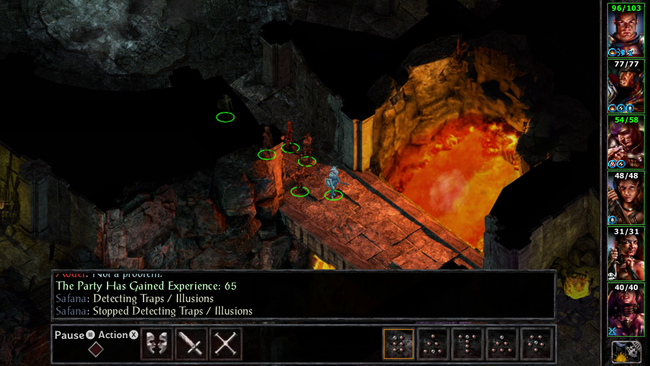
These battle tactics and strategies, such as party comp and skill/spell assigning, have real consequences and you feel the weight of those choices. Dialogue also plays an important part in this game as siding with one faction over the other can cause party members to leave you, content to close up or your reputation to drop. All of these things have the ability to change your game moving forward. While it may become difficult, I appreciate that the game has a variety of choices that allow you to play a character with any moral alignment and I appreciate that those choices are seen in the party you can have and the quests or NPCs that open to you.
One main downside to the game being so open is journal management. It’s a common problem in RPGs like Baldur’s Gate. There’s no real way to organize or filter quests besides the general chapter they occur in. When you reach the end game areas like the city of Baldur’s Gate itself, quests and objectives begin to pile up in a way that feels impossible to sift through. This clunkiness is seen in a few other aspects of the game, such as with handing party member movement. Characters can be moved in two ways, point and click or with the left thumbstick. Depending on the area that’s being traversed it is common for the party to become scattered as one or two members become stuck behind trees or invisible hitboxes. There are also times where I advanced in a battle quicker than the quest dialogue and got stuck in place. Characters continued to do idle actions and battle noises still went off but the game was otherwise frozen and required a hard quit.
On top of some gameplay issues, it’s clear this game was originally made for PC when you have to scroll through menus. Using a controller to move items in your inventory, pick actions, etc. feels slow, much slower than if you could simply point, click and drag. The radial menu is simple to use but also feels somewhat slow when compared to other games on the PS4. Playing the game on the PS4 wasn't so bad to end up feeling like a slighted experience but it does come off as a bit clunky and there’s room for small bug fixes.
Overall, I was slow in warming up to Baldur's Gate; coming from a more modern perspective where it's commonplace to have tools like instant teleportation, little consequence to dying, and running out of spells isn’t dire, it was admittedly hard at first to get into the groove of a game where these sorts of sensibilities are simply absent. However, having to make that type of adjustment contributed to making my time with Baldur's Gate memorable and unique. There was a feeling of experiencing something I never had the chance to which, in a way, allowed this game to pull through.
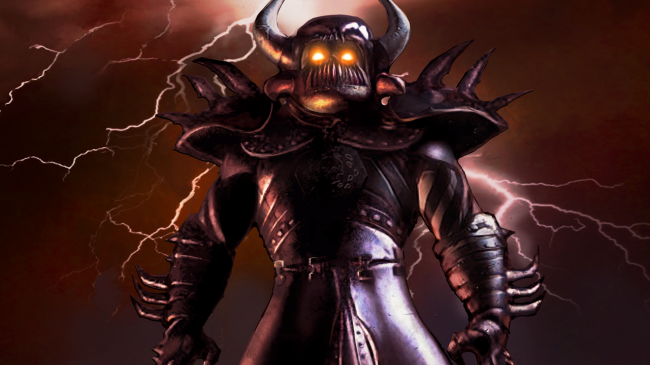
Going through Baldur's Gate for the first time is a reminder of what makes a classic RPG -- It’s hard to miss the ways it influenced the genre two decades years ago and how its impact can still be seen in games today, but as a modern experience, it does require a new player to meet in the middle a bit in terms of quality-of-life and the slightly-dated presentation. Despite that, this is the perfect game for a fan of the genre like me to finally play and having an updated version of the game available to a wide new audience is an opportunity for new fans to see exactly why it remains so highly regarded to this day.